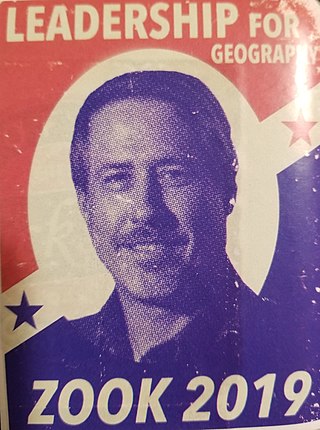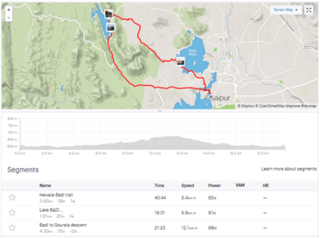
420, 4:20 or 4/20 is cannabis culture slang for marijuana and hashish consumption, especially smoking around the time 4:20 pm (16:20). It also refers to cannabis-oriented celebrations that take place annually on April 20.

The Television Interface Adaptor (TIA) is the custom computer chip, along with a variant of the MOS Technology 6502 constituting the heart of the 1977 Atari Video Computer System game console. The TIA generates the screen display, sound effects, and reads the controllers. At the time the Atari VCS was designed, even small amounts of RAM were expensive. The chip was designed around not having a frame buffer, instead requiring detailed programming to create even a simple display.

Cannabis, also known as marijuana or weed among other names, is a psychoactive drug from the cannabis plant. Native to Central or South Asia, the cannabis plant has been used as a drug for both recreational and entheogenic purposes and in various traditional medicines for centuries. Tetrahydrocannabinol (THC) is the main psychoactive component of cannabis, which is one of the 483 known compounds in the plant, including at least 65 other cannabinoids, such as cannabidiol (CBD). Cannabis can be used by smoking, vaporizing, within food, or as an extract.
Online advertising, also known as online marketing, Internet advertising, digital advertising or web advertising, is a form of marketing and advertising that uses the Internet to promote products and services to audiences and platform users. Online advertising includes email marketing, search engine marketing (SEM), social media marketing, many types of display advertising, and mobile advertising. Advertisements are increasingly being delivered via automated software systems operating across multiple websites, media services and platforms, known as programmatic advertising.

A heat map is a 2-dimensional data visualization technique that represents the magnitude of individual values within a dataset as a color. The variation in color may be by hue or intensity.

Drug liberalization is a drug policy process of decriminalizing or legalizing the use or sale of prohibited drugs. Variations of drug liberalization include drug legalization, drug relegalization, and drug decriminalization. Proponents of drug liberalization may favor a regulatory regime for the production, marketing, and distribution of some or all currently illegal drugs in a manner analogous to that for alcohol, caffeine and tobacco.
Cannabis culture describes a social atmosphere or series of associated social behaviors that depends heavily upon cannabis consumption, particularly as an entheogen, recreational drug and medicine.
Different methods of electricity generation can incur a variety of different costs, which can be divided into three general categories: 1) wholesale costs, or all costs paid by utilities associated with acquiring and distributing electricity to consumers, 2) retail costs paid by consumers, and 3) external costs, or externalities, imposed on society.

An application programming interface (API) is a way for two or more computer programs or components to communicate with each other. It is a type of software interface, offering a service to other pieces of software. A document or standard that describes how to build or use such a connection or interface is called an API specification. A computer system that meets this standard is said to implement or expose an API. The term API may refer either to the specification or to the implementation. Whereas a system's user interface dictates how its end-users interact with the system in question, its API dictates how to write code that takes advantage of that system's capabilities.

Matthew Zook is an American geographer and professor in the Department of Geography, University of Kentucky. He studies the geography of the Internet, the GeoWeb, economic geography and domain names In 2009 Matthew Zook and Mark Graham cofounded the FloatingSheep blog to understand the interactions between the GeoWeb and the offline world. In 2011 Zook cofounded the New Mappings Collaboratory at the University of Kentucky to focus on public engagement in Lexington, 'big data' and user-generated Internet content, as well as the affordances of place-based thinking, analysis, and representation.

Strava is an American internet service for tracking physical exercise which incorporates social network features. It started out tracking mostly outdoor cycling and running activities using Global Positioning System data, but now incorporates several dozen other exercise types, including indoor activities. Strava uses a freemium model with some features only available in the paid subscription plan. The service was founded in 2009 by Mark Gainey and Michael Horvath and is based in San Francisco, California.

Charlotte's Web is a brand of high-cannabidiol (CBD), low-tetrahydrocannabinol (THC) products derived from industrial hemp and marketed as dietary supplements and cosmetics under federal law of the United States. It is produced by Charlotte's Web, Inc. in Colorado. Hemp-derived products do not induce the psychoactive "high" typically associated with recreational marijuana strains that are high in THC. Charlotte's Web hemp-derived products contain less than 0.3% THC.

Wikileaf Technologies is a Seattle business providing data services to the cannabis industry and information to consumers. The company provides price indexes and cannabis strain reviews and information.
The recreational and medicinal use of cannabis in the Northern Mariana Islands has been legal since September 2018. House Bill 20-178 was signed into law by Gov. Ralph Torres, becoming Public Law 20-66. The cannabis legalization bill was introduced as the "Taulamwaar Sensible CNMI Cannabis Act of 2018," named in honor of David Kapileo Peter or Taulamwaar, who advocated cannabis legalization over four years ago. The first dispensary opened to the public on July 16, 2021.
MassRoots is a social network for the cannabis community. As of June 2016, it had an estimated 900,000 users. MassRoots for Business, the company’s advertising portal, has an estimated 1,000 clients as of June 2015. In 2014, MassRoots was one of the first cannabis-related companies to go public through a Registration Statement on Form S-1 and trades under the ticker “MSRT” and in August 2015, MassRoots submitted an application to up-list its stock to the Nasdaq.
Cannabis in New Jersey is legal for both medical use and recreational use. An amendment to the state constitution legalizing cannabis became effective on January 1, 2021, and enabling legislation and related bills were signed into law by governor Phil Murphy on February 22, 2021.

Cannabis in Washington relates to a number of legislative, legal, and cultural events surrounding the use of cannabis. On December 6, 2012, Washington became the first U.S. state to legalize recreational use of marijuana and the first to allow recreational marijuana sales, alongside Colorado. The state had previously legalized medical marijuana in 1998. Under state law, cannabis is legal for medical purposes and for any purpose by adults over 21.

Acapulco Gold is a strain of Cannabis sativa that was popular during the 1960s counterculture movement for its potency and unique color.

Eaze is an American company based in San Francisco, California that launched a medical cannabis delivery app of the same name in 2014.











